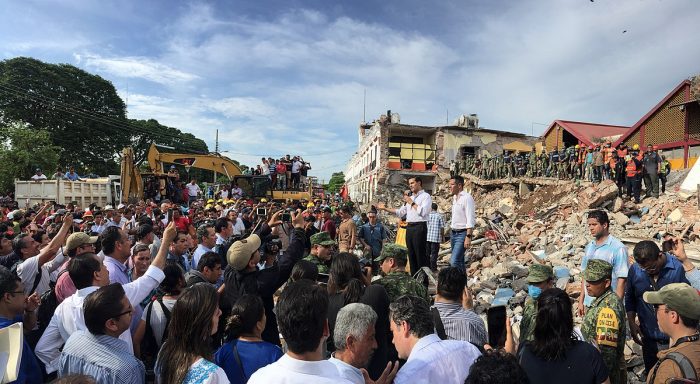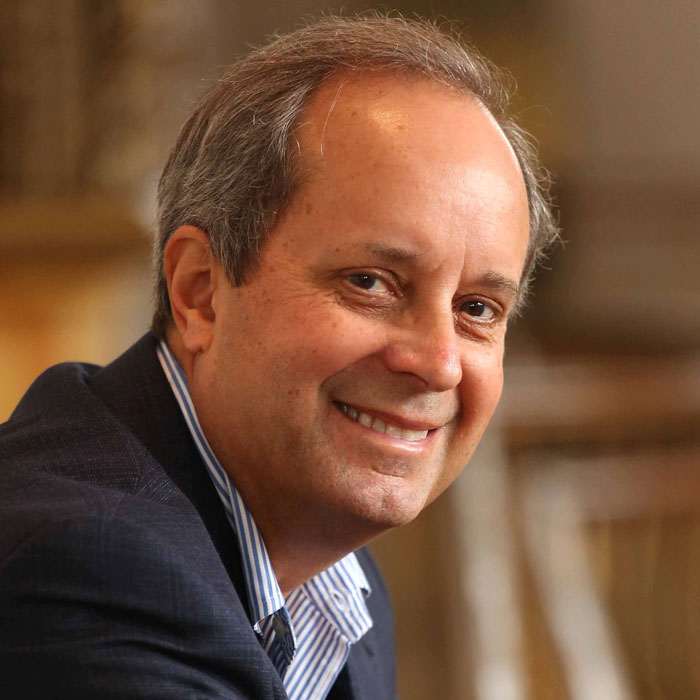What The Conrad N. Hilton Foundation’s Grants Mean for Syrian Relief Efforts
There are now well over 2 million refugees who have fled the fighting in Syria and spilled into Turkey, Jordan, Lebanon and several other countries. Well-informed observers are calling this the largest refugee crisis since Rwanda nearly two decades ago when 2 million people escaped the country during a genocide, which claimed at least 500,000 […]
There are now well over 2 million refugees who have fled the fighting in Syria and spilled into Turkey, Jordan, Lebanon and several other countries. Well-informed observers are calling this the largest refugee crisis since Rwanda nearly two decades ago when 2 million people escaped the country during a genocide, which claimed at least 500,000 lives.
Yet we’re seeing very little news coverage about this human tragedy, a relatively quiet NGO community, and virtually no major donor activity. And while CDP has been covering the ongoing crisis in Syria since we launched more than a year ago, accessing information on donor and NGOs responding to the crisis has been challenging. In a June 2013 interview, Caryl Stern, President and CEO of the US Fund for UNICEF urged donors to work harder to fund much-needed relief, especially for children. Our most recent blog post on Syria reported on a gigantic funding gap for humanitarian efforts.
So when we heard that the Conrad N. Hilton Foundation was making a large grant to Syrian refugee relief we immediately called Edmund J. Cain, Hilton’s VP of Grant Programs, to learn more. (Full Disclosure: The Conrad N. Hilton awarded the Center for Disaster Philanthropy (CDP) with an unrestricted operating grant in December 2012.)
Cain is no armchair philanthropist when it comes to refugee programs. Over his long career he has worked with The Carter Center’s Global Development Initiative, which facilitated national development strategies in post-conflict countries, and in a 30-year tenure with the United Nations, served in Malaysia, Myanmar, Afghanistan, Turkey and Egypt, and was the first Director of the United Nations Development Programme’s (UNDP) Emergency Response Division. He has seen and done a lot.
Cain told me the Conrad A. Hilton Foundation is awarding a total of $1.250 million to two organizations: Luftfahrt ohne Grenzen (LOG), a German-based nonprofit, and the International Medical Corps. The two organizations will be working closely together, with their efforts focused on facilitating the transportation and distribution of badly needed supplies to refugees in Turkey.
Why focus solely on Turkey? Cain explained that the Hilton Foundation tries to “avoid situations where there is often the potential for a lack of accountability but felt, in this case, that it could not turn it’s back on the largest humanitarian crisis facing the world today.”
In the confusion surrounding a complex humanitarian emergency, it is often hard to track where the money is going and who is doing what. In deciding to support humanitarian efforts in Turkey,Cain believes that the Turkish government, through its Prime Ministry Disaster and Emergency Management Presidency (AFAD) was a key factor. AFAD has established an impressive infrastructure for coordinating all government and NGO responses .“
He was able to ascertain during his assessment mission to the country that AFAD is regarded by other donors on the ground as “transparent, accountable and professional,” which is particularly important in Turkey where the largest number of refugees are not located in camps but are living in cities. He also commended the foundation’s grantees for not only their willingness to work together and with the Turkish government but also for forging alliances with bi-lateral,multi-lateral and private sector donors. Cain feels under these conditions that the Hilton Foundation will be able to have some certainty that its disaster philanthropy will be effective.
What can we do to get more foundations involved in the Syrian crisis? A large philanthropic effort has been conspicuously absent. In my interview and his public statements, Cain says, “Our foundation believes that the humanitarian needs of the Syrian refugees cannot be ignored. Highly vulnerable women, children and elderly are facing unspeakable suffering and cannot be abandoned—no matter how appalled we may all be by the conflict that has caused this crisis. The burden should not be left to neighboring countries like Turkey to bear alone. We, therefore, hope others in philanthropy and the donor community will lend their support in addressing this almost unprecedented need”.
So, what can we learn from the Hilton Foundation’s Syrian grants?
- CLEARLY ARTICULATE YOUR GOALS AND PRIORITIES: Although it realized that time was of the essence, Hilton Foundation took the time to identify its goals. Hilton concluded it wanted to help the dire situation for Syrian refugees through strategic grants to organizations involved in Turkey. Too many grants are made to disasters without clearly articulated donor expectation and intent, which is challenging for both the funder and the grantee.
- TAKE THE NECESSARY TIME FOR RESEARCH: Hilton Foundation didn’t act immediately, but took the time it needed to do research on the issues involved, various programs and countries. It ended up identifying the precise country and organizations it believed could make the most impact toward the foundation’s goals. Once the foundation had a good idea what it wanted to support, staff spent time working with these two organizations to improve capabilities and shape a program that meets the foundation’s and the organizations’ objectives.
- GO DEEP: Once the Hilton Foundation conducted its due diligence and created a plan, it took action – and in a significant way with a seven-figure gift to be shared between two organizations. Too many foundations are paralyzed with the fear of the unknown and as a result sit on the sidelines. Or they pilot small projects to “play it safe” until they can determine whether they can be successful. As Cain notes: “Highly vulnerable women, children and elderly people are facing unspeakable suffering and cannot be abandoned.”
More like this

Dangerous Turning Point


